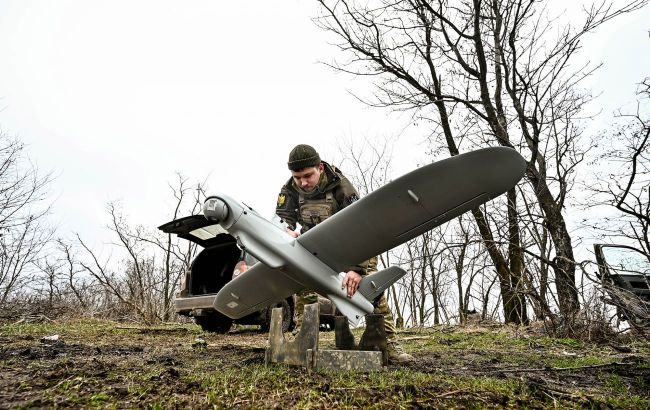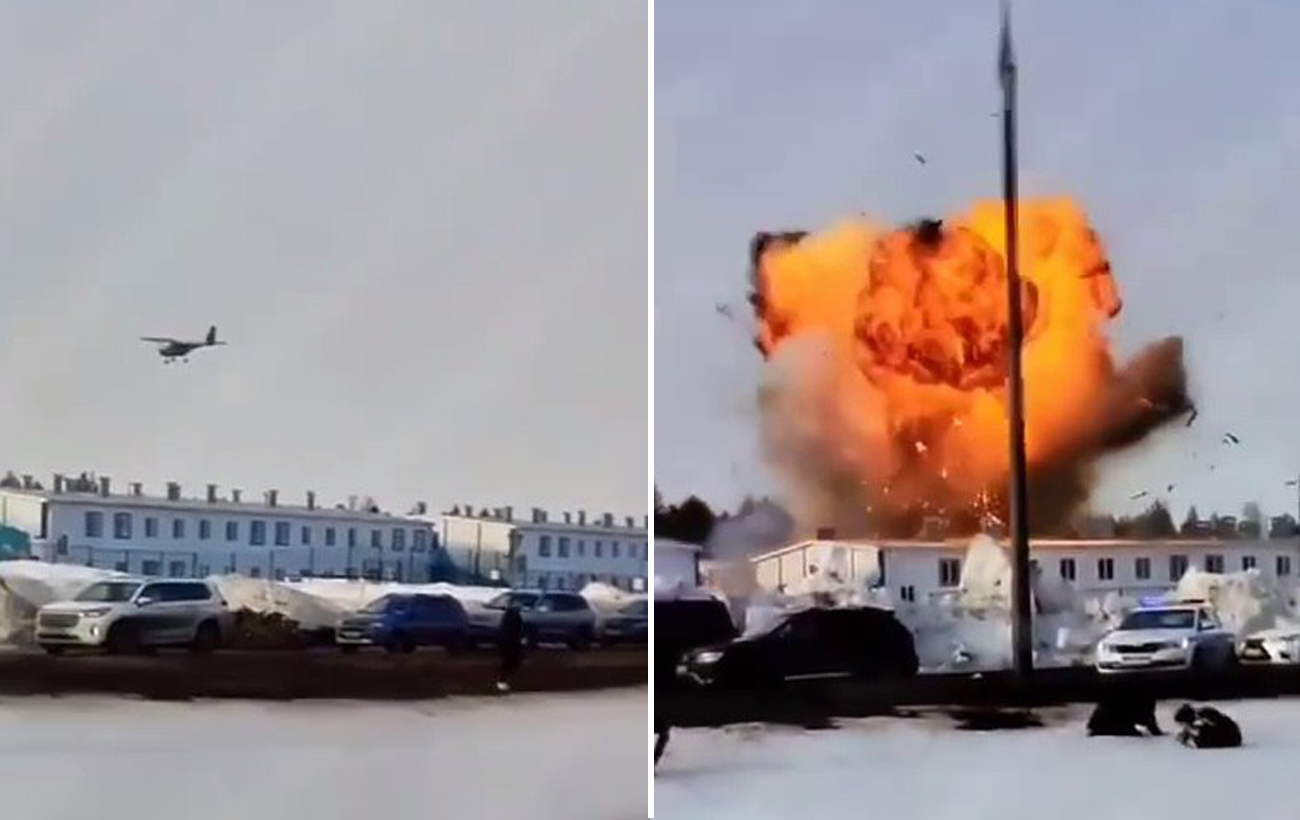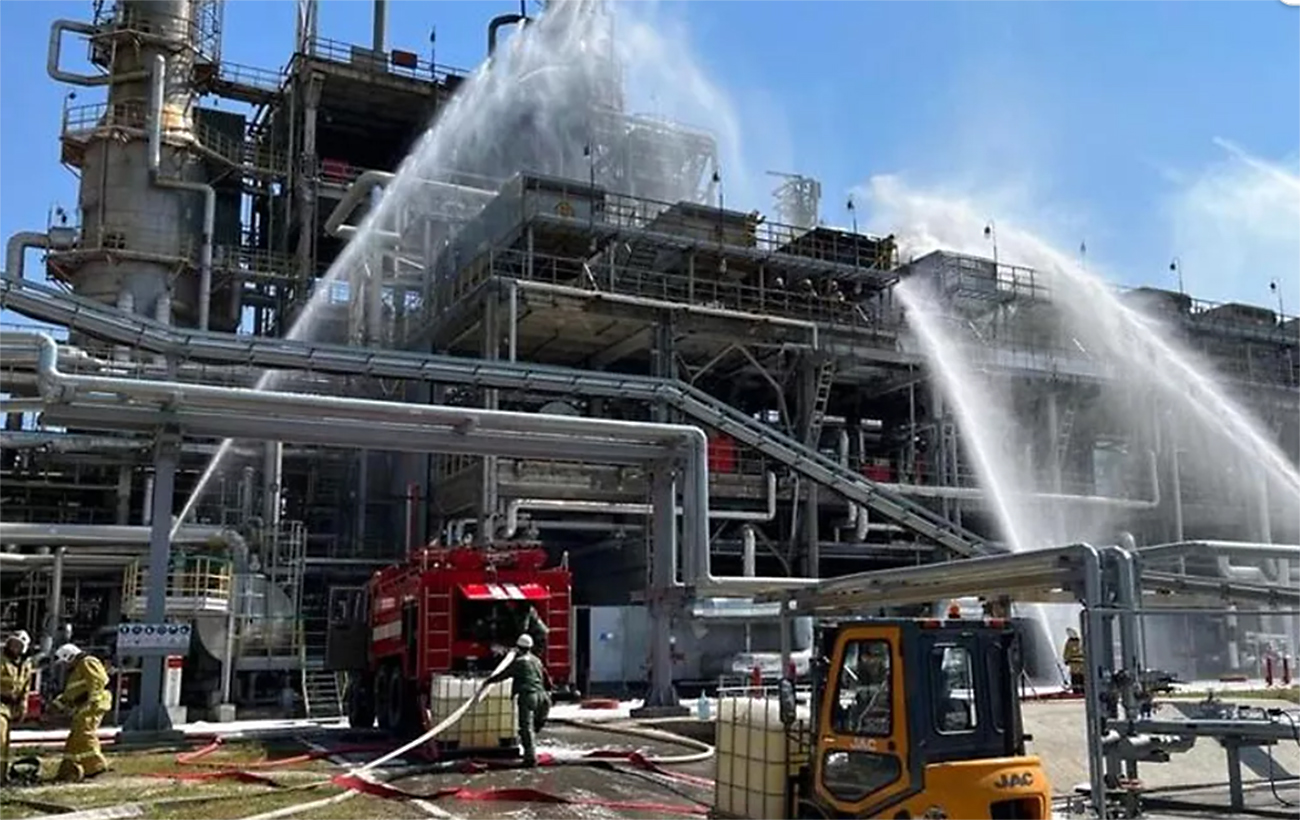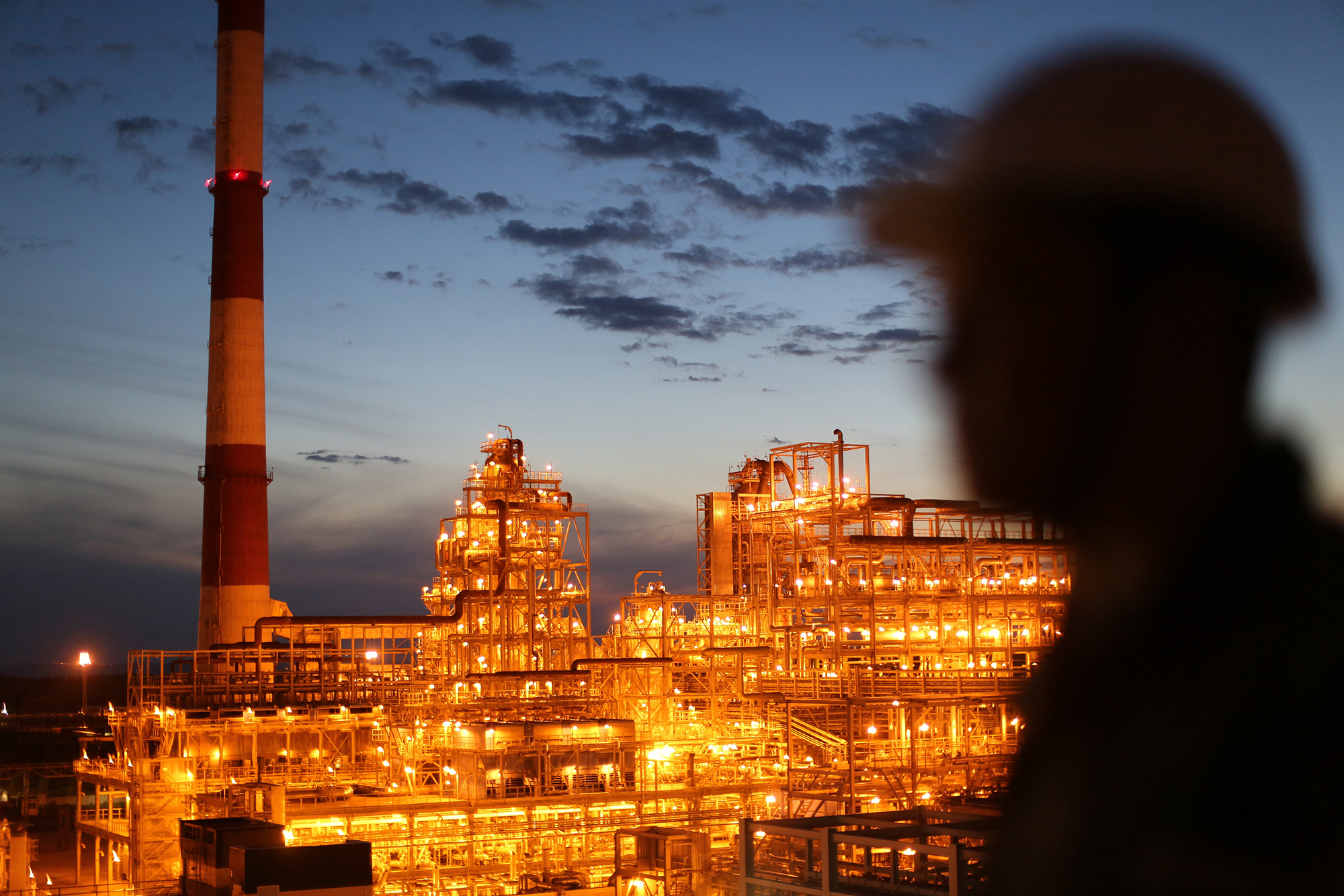Achievable targets for drones. How Ukraine strikes deep into Russia, targeting refineries and more
 Drone operator (photo: Getty Images)
Drone operator (photo: Getty Images)
How Ukrainian drones ended up deep in the Russian rear, what constitutes a legitimate target for Ukraine, and the impact of the attacks – in material by RBC-Ukraine.
The active attacks on Russian oil refineries began as early as late summer 2023. Initially, the Russians did not immediately declare drone strikes but rather limited their statements to sabotage at the refineries, resulting in explosions and disruptions to production. On April 2nd, it became known that a Ukrainian drone had reached Tatarstan, where it struck a factory producing Iranian drones.
By the spring of 2024, the attacks had become so widespread that the United States even stated that they did not support strikes on Russia's oil industry. Meanwhile, in Ukraine, it was noted that they were not using Western weapons to attack refineries, and the strikes would cease once Russia stopped targeting Ukraine's energy infrastructure.
Target - Shahed
On April 2nd, in the city of Yelabuga, located in Tatarstan more than a thousand kilometers from Ukraine, an explosion occurred - an unidentified UAV reached the buildings of the Geran-2 plant and exploded, crashing into the roof. The plant had been recently constructed and was producing upgraded Iranian Shaheds. Additionally, according to Russian media reports, the drone targeted a dormitory for students working at the plant.
That same night, an attack took place on an oil refinery in Nizhnekamsk (also in Tatarstan). Later, a source from RBC-Ukraine in the intelligence services reported that the operation involving the strikes in Yelabuga was coordinated by the Main Directorate of Intelligence of the Ministry of Defense of Ukraine. As a result of the attack, the production facilities of the Geran-2 plant were significantly damaged. Another source confirmed that the strike on the Nizhnekamsk refinery was planned by the Main Directorate of Intelligence and the Security Service of Ukraine.
According to the source, a Ukrainian long-range drone reached the crude oil processing unit, causing a fire. The capacity of this unit is 8 million tons of oil per year, which accounts for 2.6% of Russia's total annual oil processing. Additionally, this plant is one of Russia's top five largest oil refineries.

The strike on the Geran-2 plant in Yelabuga (photo: screenshot from video)
Russian media claim that the drone that attacked the Geran-2 plant and the oil refinery is the UJ-22 Airborne produced by the Ukrainian manufacturer Ukrjet. The UJ-22 Airborne is a Ukrainian UAV that was first introduced on June 16, 2021, at the international arms exhibition Arms and Security - 2021. It can fly for up to 14 hours at an altitude of up to 6,000 km and carry 20 kg of explosives. However, its maximum flight range is 800 kilometers. Meanwhile, Yelabuga is located at a distance of over 1200 km from Ukraine if flying directly.
Some so-called experts from Russia also claim that the Yelabuga plant was attacked by the A-22 aircraft, noting how precisely it followed the trajectory. Ukraine has not officially confirmed information regarding the attack being carried out by special services. It is also unknown how the strike was executed.
In turn, Minister of Digital Transformation Mykhailo Fedorov stated in an interview with Welt that in 2024 the production of long-range drones increased tenfold.
"Most drones that attacked Russian refineries have a range of 700 to 1000 km, but now there are models that can fly over 1000 km," Fedorov said.
Burning oil
Since the beginning of the full-scale Kremlin invasion of Ukraine, Russian oil refineries have been attacked over 40 times. In the vast majority of cases, combat drones have achieved their objectives. Despite attempts to minimize the scale of the damage in the eyes of the public, Russian Telegram channels regularly publish images of burning reservoirs.
In the past few weeks, drones have targeted refineries that are among the top 5 in Russia. Among them is the Ryazan refinery, which was attacked by three drones overnight on March 13th. According to Reuters, as a result of the attack, about 70% of the plant's capacity may be disrupted.
The day before, the Kirishinaftorgsintez plant in the Leningrad region was attacked. It is the second largest refinery in Russia and processes about 17.7 million tons of oil. There is no information available regarding the extent of the damage. It is worth noting that the city of Kirishi is over 800 km away from Ukraine.
On the same day, drones struck the NORSI refinery. It processes 15.8 million tons of oil, which accounts for 5.8% of the total processing volume. Reuters reports that the drone damaged the main unit, leading to the shutdown of at least 50% of the refinery's capacity.

Novoshakhtinsk refinery (photo: Russian media)
On March 13th, drones struck the Novoshakhtinsk oil refinery, located approximately 150 km from the frontline in the Lugansk region. According to local authorities, debris from the drone fell onto the refinery's premises. The refinery was first targeted in June 2022, and since then, the Illinsky, Afipsky, and Tuapse refineries in the Krasnodar region, as well as refineries in Yaroslavl and Volgograd, have been attacked.
Andrii Yusov, a representative of Ukrainian intelligence, reported that "a series of events" related to the military facilities of the aggressor country occurred at the Novoshakhtinsk refinery, making it a legitimate target for Ukraine.
"Despite being referred to as the Novoshakhtinsk oil refinery, it is a military facility used to supply and support the occupying force in Ukraine," he noted.
To defend against further attacks, Russian enterprises have been actively purchasing defense systems for the past six months, particularly radio-electronic warfare (REW) systems. Even the Angarsk Petrochemical Company, located 5,000 km away from Ukraine, has ordered REW systems. They mainly acquire so-called trench REW systems, such as Garpun and Skvorets. While some attacks are successfully repelled, the majority are not. This is because REW systems are unable to detect all types of drones when they come in large numbers. Therefore, refineries are turning off lighting at night and reinforcing reservoirs.
Experts note that drones are not capable of completely incapacitating most Russian refineries, thus limiting or disrupting fuel supply to the front lines. However, this would entail a war of attrition. Additionally, the production cost of drones is much cheaper than repairing refineries.
Analysts also claim that Ukraine utilizes drones equipped with artificial intelligence for attacks on production facilities. According to CNN, AI helps drones navigate and evade REW systems.
"Each aircraft is equipped with an onboard computer containing satellite data and local terrain information. Flights are pre-determined in coordination with our allies, and the aircraft adhere to the flight plan, allowing us to target objectives with precision up to the meter," a source close to the Ukrainian drone program told CNN.
Meanwhile, Chris Lincoln-Jones, an expert in drone warfare and artificial intelligence, noted that the level of "intelligence" is currently very low, as the technology is still in its early stages of realizing its potential.

Ukrainian drones (photo: Getty Images)
It is worth noting that since the full-scale invasion of Russia into Ukraine and the beginning of massive attacks on Ukrainian energy infrastructure, practically any energy object in Russia is considered a legitimate military target for Ukraine. To successfully combat the occupiers on the front lines, it is necessary to diminish fuel reserves. Additionally, oil is one of the main commodities of the Russian economy. By undermining this sector, Russia will have fewer resources to continue financing the war against Ukraine, as reported by a source in the defense forces to RBC-Ukraine.
"We are systematically implementing a meticulously calculated strategy to diminish the economic potential of Russia. Our task is to deprive the enemy of resources and reduce the flow of oil money and fuel that Russia directs directly into the war, into the killing of our citizens," he noted.
Reaction of the West
When attacks on Russian oil refineries became regular and widespread, at the end of March, the Financial Times reported, citing sources, that the US had asked Ukraine to refrain from targeting Russian oil refineries further. Supposedly, strikes on the refineries could lead to an increase in global oil prices. Additionally, concerns about escalation from Russia were voiced once again.
The agency noted that in 2024, oil prices rose by 15% to $85 per barrel, leading to an increase in fuel costs, coinciding with the start of the re-election campaign of US President Joe Biden.
"Washington is also concerned that if Ukraine continues to strike Russian targets, including ones hundreds of miles from the border, Russia may retaliate against the energy infrastructure relied upon by the West," the Financial Times writes.
On March 26, a statement from Matthew Miller, Spokesperson for the US Department of State, appeared on the department's website. He did not address strikes on oil refineries specifically but generally stated that the US does not support Ukrainian attacks on Russian territory.
"So I’m not going to speak to specific conversations, but it has always been our position since the outset of this war that we do not encourage or support Ukraine taking strikes outside its own territory," Miller said.

Oil refinery in Nizhnekamsk (photo: Getty Images)
Later, the Ukrainian government responded to the information from the Financial Times. According to the Vice Prime Minister for European and Euro-Atlantic Integration of Ukraine, Olha Stefanishyna, Russian oil refineries are a legitimate military target for Ukraine. Speaking on this matter, she noted that in this case, the Ukrainian Defense Forces are acting in accordance with NATO standards.
"They said (Alliance partners in 2022 when asked to close Ukrainian airspace): 'Olha, you don't understand NATO standards. In NATO terms, 'closing the sky' primarily means destroying the infrastructure on the territory of the Russian Federation that enables the bombing of Ukrainian cities, and factories producing missiles.' That is why we are acting according to the best NATO standards," Stefanishyna stated.
Later, Ukrainian President Volodymyr Zelenskyy responded to the statement as well. He noted that indeed the US "did not react positively" to the strikes on Russian oil refineries, but the White House cannot restrict Ukraine in this regard, as the Ukrainian Defense Forces are using their weapons. He also stated that the attack on Russia's oil refining industry is a mirrored and fair response from Russia to its attempt to destroy Ukraine's energy sector.
"If there is no air defense to protect our energy system, and the Russians attack it, my question is: why can't we respond to them? Their society needs to learn to live without gasoline, without diesel, without electricity... This is fair... When Russia stops these steps, we will stop," he noted.
It is also worth noting that, according to experts, Ukraine's strikes on Russian oil refineries do not affect the rise in oil prices. According to Oleksandr Kharchenko, Director of the Energy Research Center, the analysis from the Financial Times raises significant doubts, and more likely, an attack on the plants could even lead to a reverse effect.
"Russia will simply push raw oil due to the impossibility of exporting oil products," Kharchenko noted.
In turn, Serhii Kuyun, director of the consulting group A-95, pointed out that the oil market is not destabilized by strikes on oil refineries. According to him, if we assume that Russian exports of oil products will decline, more crude oil will enter the market. In his opinion, theoretically, there could be an increase in diesel fuel prices, which is Russia's main export position.
"But practice shows that growth quickly turns into decline because the market is filled with alternative sources. Look at the European natural gas market: after the shock of 2022, gas prices plummeted to a minimum, and the season passed unnoticed," Kuyun added.
Taking into account the fact that at the beginning of the full-scale invasion, the West announced unprecedented sanctions, including those related to the oil industry of the Russian Federation, such statements from the US sound strange. Russia has been one of the main suppliers of energy resources for many years, so sharply reducing their consumption in a few years is difficult and costly. However, refusing to trade with an aggressor country and, accordingly, not financing its attacks on other countries is one of the main principles of Ukraine's Western allies, which they tirelessly emphasize at every convenient opportunity.

